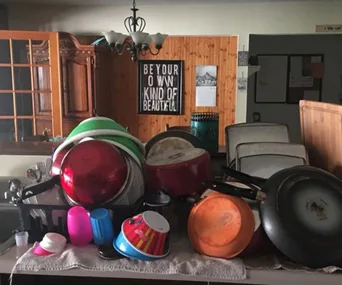Fighting her way back from tragedy and grief, wellness expert Dee Millenkovic tells why she’s saying yes to life
By her own account, wellness coach Dee Milenkovic says she isn’t successful. Well, not in the traditional sense.
“I don’t have a partner, live in a big house or drive a fancy car. I don’t have any talents to speak of, and I don’t have two cents to rub together,” she explains.
Despite this, Dee has more passion and exuberance for life than most people. But she wasn’t always this way. In fact, for most of her life, Dee was shy and introverted.
It all began when she was eight and her younger sister stepped in front of a truck and was killed instantly. Dee’s parents dealt with their grief by becoming overprotective, restricting her life to home and school.
“My parents were traumatised and everything felt unsafe from then. I was scared, shy and lonely,” she recalls.
Riddled with self-doubt, fear, feelings of unworthiness and a lack of social skills, Dee withdrew into depression.
“I was absorbing all the grief, sadness and anger from everyone around me. It overwhelmed my system and my body’s response was to shut down.”
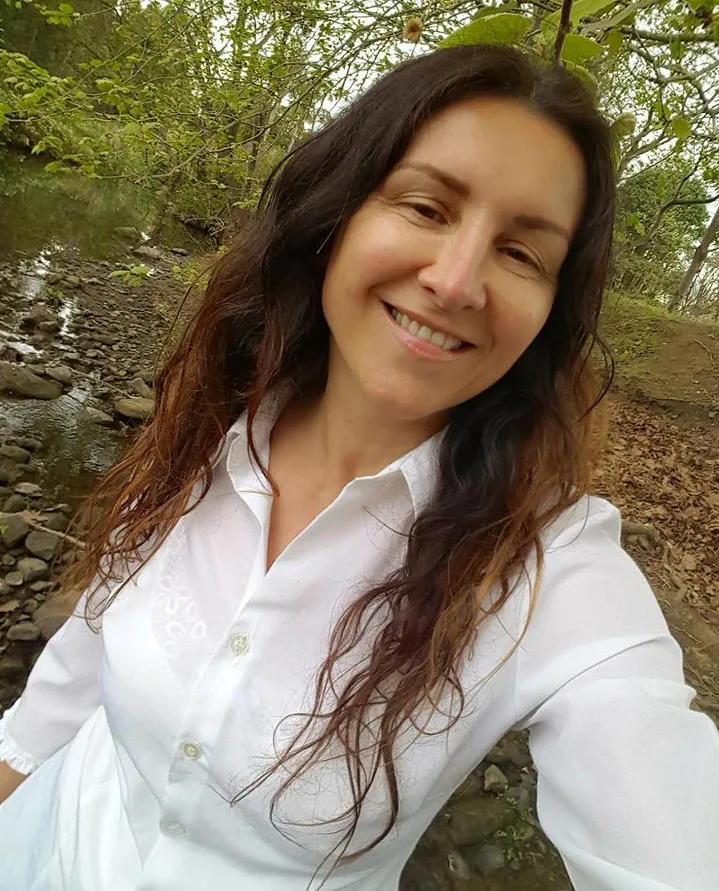
Dee’s dream is to build a wellness centre to help others.
Dee’s experience of depression and low self-esteem is not unlike that of many women, but it is her determination to change that makes her truly inspirational.
“Doctors kept throwing anti-depressants at me but instead, I tried therapy.”
This involved learning about the brain and the role that alternative methods such as breathing techniques, hot and cold immersion, various somatic and trauma therapies, play in mental health.
“The pivotal moment was when I heard someone say that mental health is like a bank. If your life and mind are full of negative things, you need to balance it with positive things.”
Dee began to pursue positivity, new experiences and started to embrace life. Forcing herself out of her comfort zone, she joined groups, went out dancing, conquered her fear of heights and gained a diploma of screen and media.
But her biggest success has been helping others. Knowing her greatest fear was “putting herself out there”, Dee started recording motivational videos to share her knowledge.
“I know what it’s like to feel utterly hopeless, to be overwhelmed by grief and despair, and I wanted to help people in that situation.”
Drawing on her formal education in psychology and fitness, as well as her own life experiences, Dee helps people suffering from mental health issues such as depression and anxiety.
Her dream is to build a wellness centre where people can receive therapies to address their trauma and stress responses.
Listening to her talk, it is difficult to believe that the woman whose voice bubbles with enthusiasm was once shy.
“My life changed when I became brave enough to say yes to life and, to me, that’s success.”
Trusting herself to confront emotional and physical mountains helped set Jo Cunningham free
If someone had told Jo Cunningham five years ago that, in 2018, she would climb a snow-capped mountain in shorts and bikini top, she’d have told them they were crazy.
But Jo has been clawing her way up mountains her whole life. Metaphorical ones, that is.
Her journey began as a teen struggling with anxiety and depression. Seeking professional help, Jo was prescribed Valium and was left feeling disempowered.
“I thought there was no help for me. I got sick of feeling pathetic and decided the best thing I could do was push my issues down.”
But pushing away her symptoms only led them to resurface in a different form. Jo became obsessed with perfection and developed orthorexia accompanied with binge eating.
Orthorexia is a disorder where people develop obsessive behaviour in their pursuit of a healthy diet.
“I read everything I could about nutrition and started to limit all food I considered to be unhealthy,” she says.
Starved of energy, Jo began to binge on the limited food she had restricted her diet to, such as millet.
Her journey through orthorexia led Jo to a 12-step program for people with eating disorders. It was there she discovered the life-changing benefits of belonging to a supportive community and overcame her eating disorder.
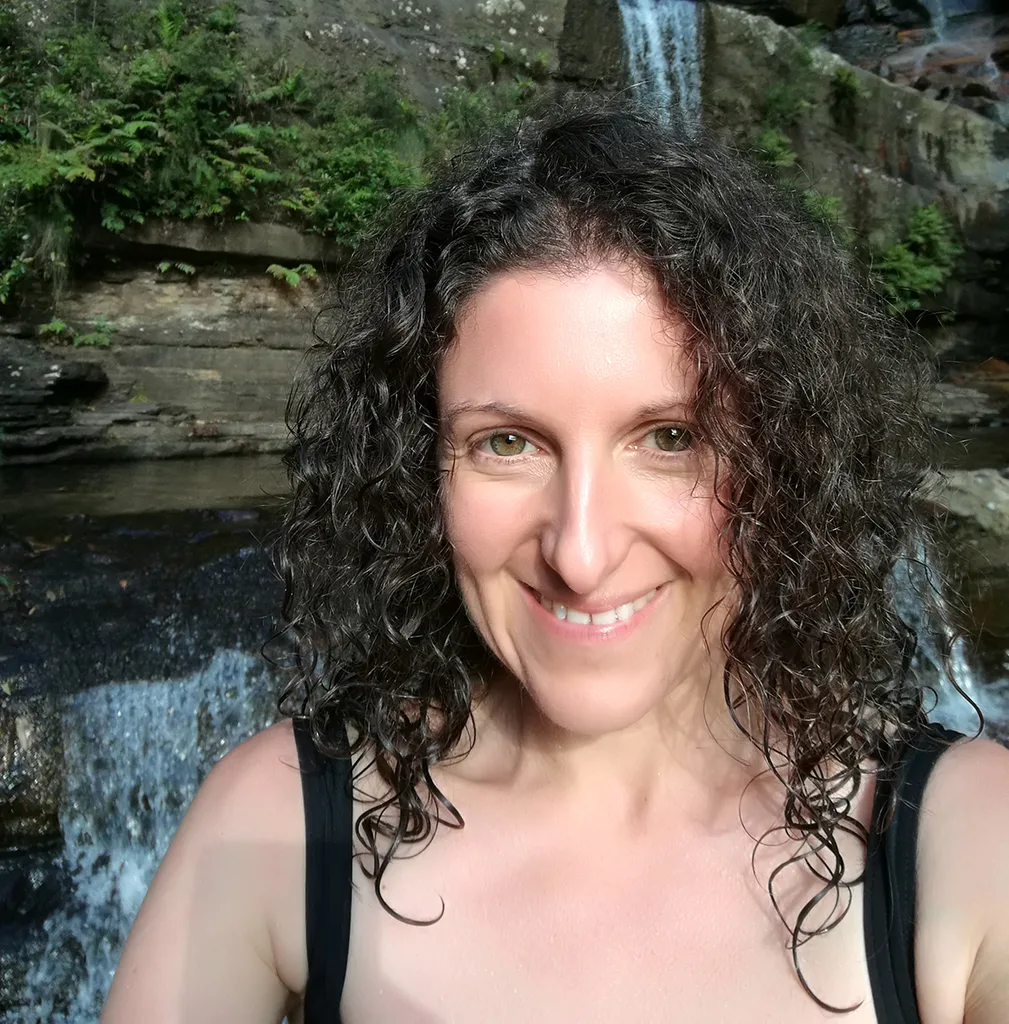
Jo runs a Facebook group for people practising the Wim Hof Method
Feeling great for the first time, Jo got busy with life but says she began to neglect what got her well in the first place – a deeper connection to others.
This time, it manifested as physical and mental fatigue. So extreme was her lethargy that, at times, Jo couldn’t even leave her house.
Sliding into depression, Jo struggled with thoughts of suicide.
“Breathing felt intolerable. I didn’t want to live and I didn’t know why. I have a rule about suicide though – no matter how bad things get, I won’t go there.”
During this time Jo was diagnosed with a dissociative disorder. People with this condition often experience a disconnection between thoughts, memories, surroundings and actions.
“The diagnosis made so much sense. It made me realise how important things like being in nature and connecting to others are for me if I want to stay well.”Three years ago, Jo discovered the Wim Hof Method (WHM).
WHM is best known for cold immersions as well as controlled, hyperventilation techniques. It was also through this method that Jo rediscovered the benefits of community and began to heal.
Establishing a Facebook group for people practising the method, Jo began to organise group trips into nature to swim under waterfalls, and slowly, her symptoms began to abate.
“I got to combine my love for nature with my love of community. It was perfect.”
This sense of community sparked a new drive in Jo and she enrolled to become a WHM instructor, which led her to climb Mount Sněžka in Poland.
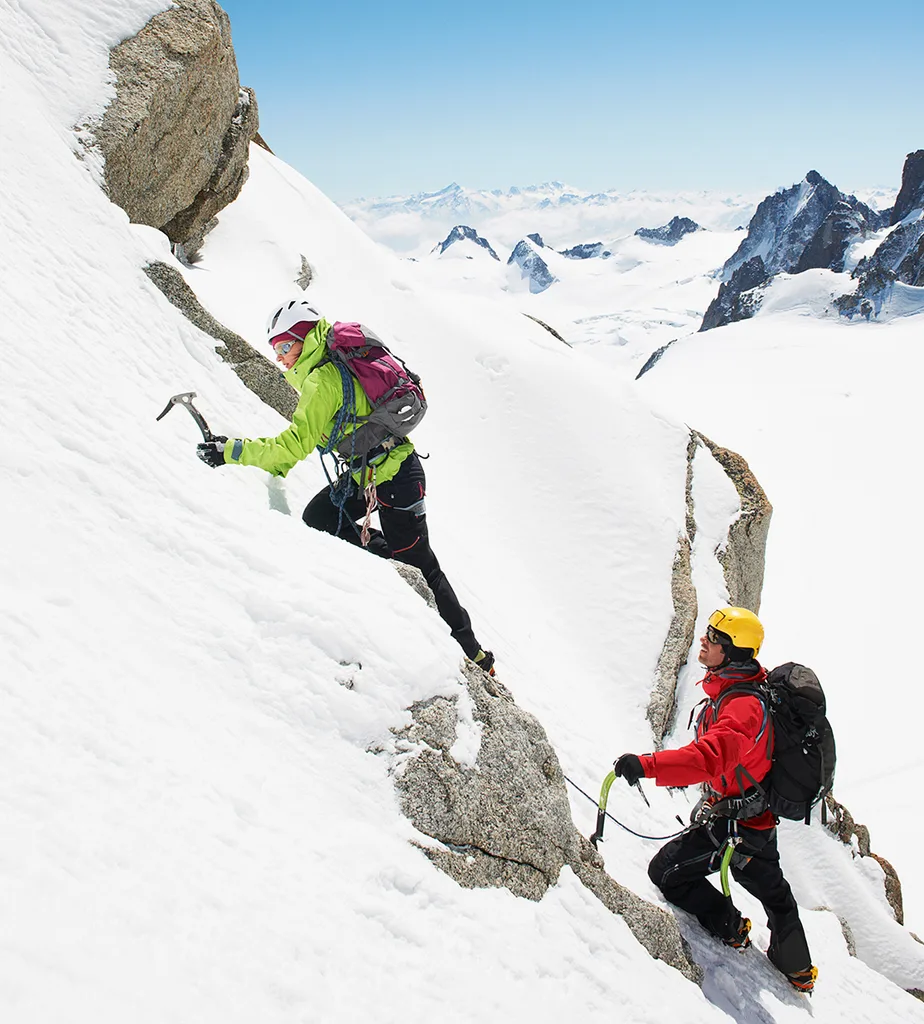
Jo was determined to shed her past by conquering the mountain, despite gruelling conditions.
“With windchill, the temperature was around -15°C. Rain had washed snow off the track so it was bare rock covered in slippery ice. People were losing focus and in those conditions you need to focus or risk hypothermia.”
After almost reaching the summit, the group decided it was unsafe to continue and the climb was aborted. Despite not reaching the top, Jo knows she climbed the mountain in more ways than one.
“Before I left, I was terrified I wouldn’t be able to do it. But the mountain was calling me to be more than I thought I could be. With the support of others, I realised that I could trust myself –even in the harshest of conditions.”
Becoming a WHM instructor and scaling Mt Sněžka has given Jo a new lease on life.
“I’m now in a perfect position to support others to overcome challenges by tapping into the deepest parts of themselves. And, although the answers come from within, in my experience, the process isn’t complete without a deep connection to others.”
After her baby son was injured, Nicole Newton had to break down before rebuilding her life
Happily married with one child and a new baby on the way, Nicole Newton thought she had her life planned.
Nearing the end of her second pregnancy, Nicole was blissfully unaware that an unthinkable event would soon occur, forcing her to realise that she would need to change her plans or else she would break.
“In one catastrophic moment, everything changed. During labour, my baby acquired a brain injury due to a compressed umbilical cord, which caused a lack of oxygen to his brain,” she explains.
“I suddenly had to create a new way of looking at my life.”
But the transition wasn’t easy.
“I felt like life was punishing me and my child. I was angry, resentful and felt an unimaginable grief and attachment to what could have been.”
Seeing pregnant women became hell and she lost faith in life. Nicole continued to struggle for the next two-and-a-half years until, finally, she broke.
It was through therapy that Nicole was given permission to have her breakdown and in doing so, she began what she describes as a journey back to self.
“My breakdown was my breakthrough,” she explains. “Rather than looking back at what could have been, I embraced what was. I also allowed my feelings of grief ‘to be’ and flow through me rather than resist it.
“However, in my quest to accept what was and focusing on nurturing my sons, I didn’t always nurture myself or my relationship. This, combined with other factors, resulted in the breakdown in my marriage. This led to my curiosity about human behaviour and how I could help others.”
As part of her healing, Nicole studied neuro-linguistic programming (NLP) and is now a qualified NLP coach and trainer.
“Learning to understand myself and my patterns of thought, the power of language and how it impacts how I feel, as well as a deepened awareness of the mind-body connection, was incredible for my healing and growth.”
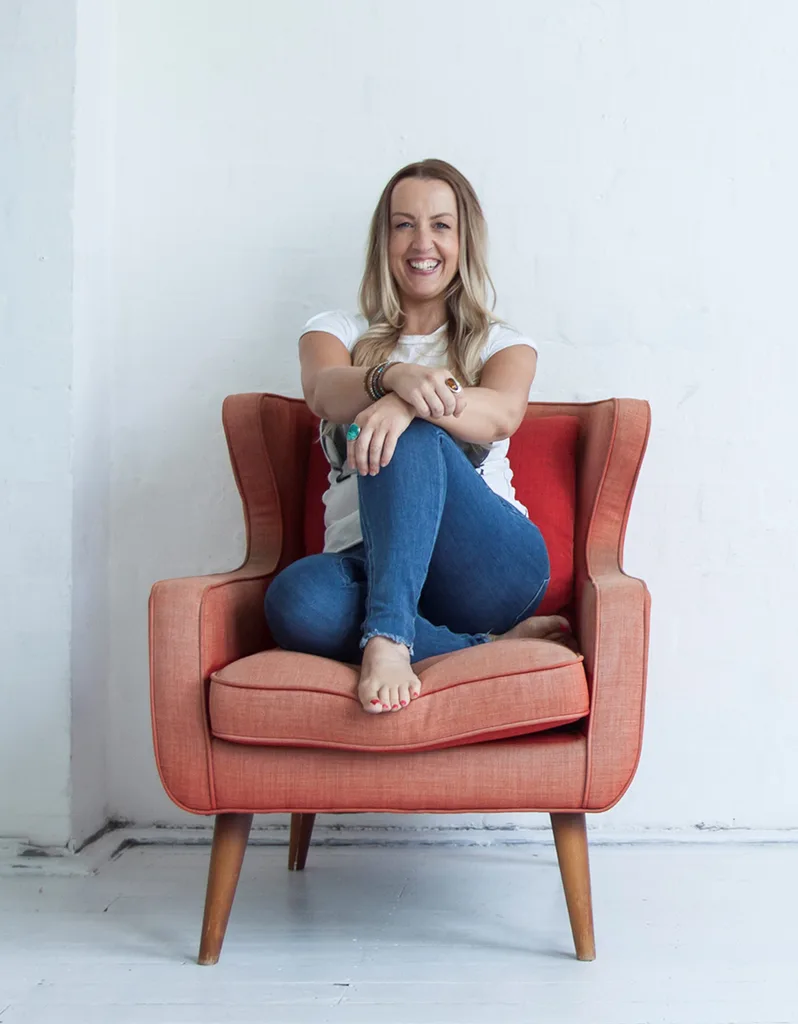
But the most important element of her healing was learning to forgive.
“I had to forgive myself for what went wrong with Will’s birth and I had to forgive the midwife who delivered my son. Forgiveness doesn’t change the past but it does set you free from the pain.”
Nicole also attributes meditation and a connection to others as crucial in her journey.
Through her own healing, Nicole knew it was time to give back and has spent the last few years helping others.
Her most ambitious project is ‘The Possibility Project’ in which she leads women through healing circles and meditative dance practices.
“By holding space for them to be seen, loved and supported, women can heal and become more aware of what’s infinitely possible in their lives,” she explains.
Nicole now sees her birth experience and her son as her greatest teachers.
“While there are still moments where I feel sad for what could have been for Will, I’m grateful for what is and the pure joy he has for life. He has deepened my gratitude, integrity, sense of self, compassion and love for life.”
Support and counselling is available if you are having suicidal thoughts.
Call Lifeline – 0800 543 354
Samaritans – 0800 726 666, samaritans.org.nz;
Suicide Crisis Helpline – 0508 828 865
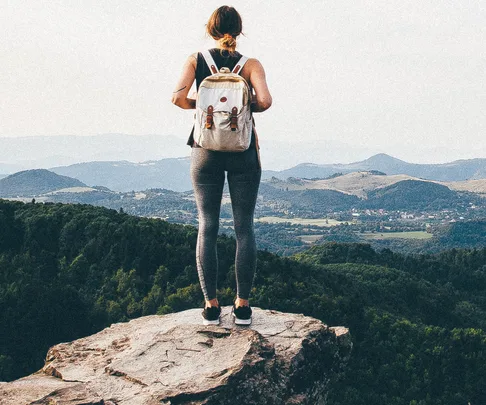 Getty Images
Getty Images
